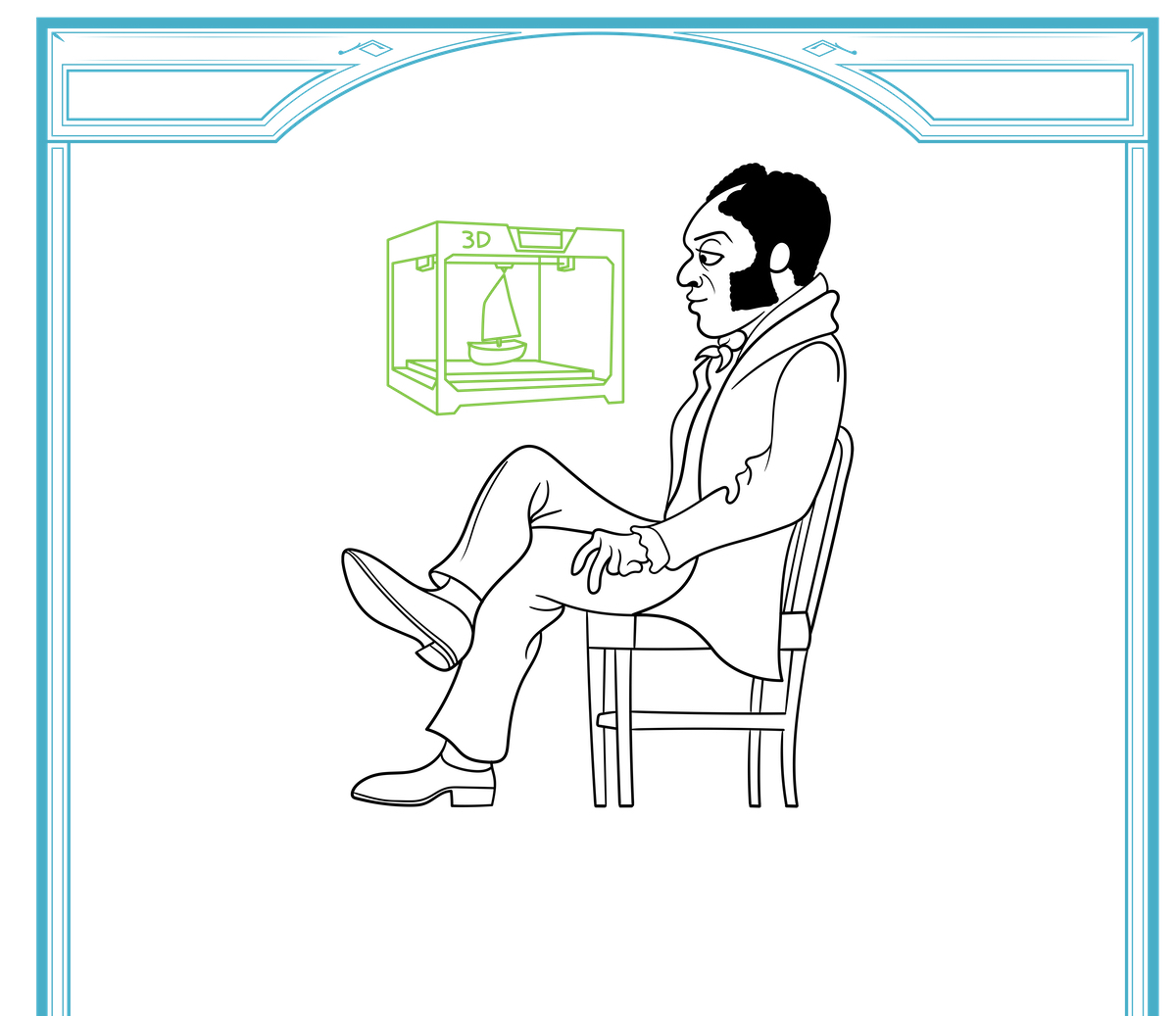The fight for racial equity has existed in the U.S. and Philadelphia since their inception. Before the protests and calls to defund the police of today, there were the abolitionists — including James Forten (1766-1842).
What inspiration from the 18th- and 19th-century businessman’s life can we pull for today’s struggles? For one, that entrepreneurial success doesn’t mean abdicating a role in advocating for the greater good.
Here’s why Technical.ly is considering Forten now: Way back in February, we launched an editorial series connecting innovators of Philly’s past to modern institutions echoing their legacy. We talked to REC Philly’s Will Toms about John Coltrane; to PhillyCAM’s Gretjen Clausing about Margaretta Forten and Lucretia Mott; to University of Pennsylvania professor Cherie Kagan about the ENIAC Six; and to a crew from the University City Science Center about Buckminster Fuller.
It was all meant to celebrate the city’s long history of individuals solving problems in new ways, while highlighting the local orgs hosting programming during the original Philly Tech Week 2020 presented by Comcast. Since the reimagined PTW20 is now happening virtually — and in a mere five weeks — we’re bringing our series on historical figures back to continue to consider how our past influences our present.
Given the prominent social justice movement reinvigorated this past spring and ongoing (but pandemic-elevated) call for more resources for Black entrepreneurs, Forten is a fitting focus for the next edition. We tapped local author and historian Nathaniel Popkin for some insight into his life and work.
Born free, this Black abolitionist is the classic technical cofounder. After volunteering for the American troops in the Revolutionary War — not common among Black civilians at the time — he was an apprentice shipbuilder who developed his own products that made him a wealthy man, leading a multiracial shop floor in his sail loft at what’s now known as Penn’s Landing. That drive for prosperity signified a commitment to the individualistic early American — and Philadelphian — ideal that “the way you govern yourself matters most,” Popkin said.
“He felt himself deeply, always, to have been an American,” the historian said. “He saw in the system of America [that there was] the sort of capital available to do things — and if you could exploit that capital, you could get rich. You could feel like you’re contributing to the life of the place, no matter who you were.”
As an activist, Forten vehemently opposed the American Colonization Society-driven movement to encourage free Black Americans to voluntarily migrate to Africa, as he considered himself as American as, say, his ultra-wealthy white contemporary Stephen Girard (who we’ll feature in a future edition of this historical series). Instead, he and his wife, Charlotte, instilled in their large family that desire to fight for equality even while facing intense discrimination. Daughters Sarah, Harriet and Margaretta, for instance, started schools and literary associations while leading the Philadelphia Female Anti-Slavery Society. (Read more about Margaretta Forten’s work in an earlier edition of this series.)
“What they were trying to innovate was an American family that took its responsibilities in a democracy very seriously, in almost every way possible — even to the point at which they were effectively being told, ‘You don’t matter,'” Popkin said. “What you get is one of the beginnings of the story of Black Philadelphians improvising and improvising and improvising.”
Forten’s story hasn’t been told as much as some of his contemporaries, but Popkin said his dedication to bettering America might inspire modern Philadelphians to do the same.
“Sometimes, when all of us want to give up on this place,” he said, “you look back on those who didn’t, and that took courage and vision and hope, which we all could use.”







